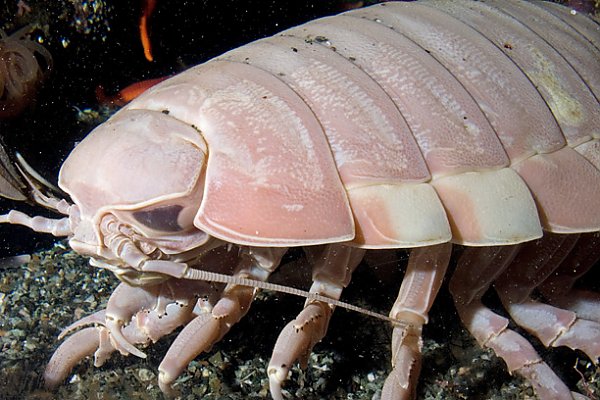Discovering Isopods in the UK A Complete Guide to These Fascinating Crustaceans

Isopods are intriguing creatures that have been gaining popularity among nature enthusiasts and pet hobbyists alike. Often referred to as woodlice or pill bugs, these tiny crustaceans are not only found in tropical regions but are also native to the UK. If you’re curious about isopods in the UK, this guide will cover everything you need to know about their habitat, species, care, and their role in the ecosystem. We’ll also discuss how you can find and even keep these fascinating creatures as pets.
What Are Isopods?
Isopods are a group of crustaceans that include over 10,000 species worldwide. They belong to the order Isopoda and can be found in various environments, from deep-sea trenches to forest floors. In the UK, isopods are commonly known as woodlice and are typically found in moist, dark places like under rocks, logs, or leaf litter.
Common Isopod Species in the UK
There are several species of isopods native to the UK, each with its unique characteristics:
- Common Rough Woodlouse (Porcellio scaber): This species is one of the most common isopods found in the UK. It has a rough, bumpy exoskeleton and is usually grey or brown.
- Common Shiny Woodlouse (Oniscus asellus): Known for its smooth, shiny appearance, this species is often found in damp environments like gardens and forests.
- Pill Woodlouse (Armadillidium vulgare): Unlike most isopods, this species can roll into a ball when threatened, similar to its tropical cousins, the pill bugs.
- Rockpool Isopod (Ligia oceanica): Found along the coastline, these Isopods UK are adapted to life in the intertidal zones and are more active during high tides.
The Role of Isopods in the Ecosystem
Isopods play a crucial role in the UK’s ecosystem. As detritivores, they feed on decomposing organic matter, such as dead leaves and wood, helping to recycle nutrients back into the soil. This process not only enriches the soil but also promotes healthy plant growth.
Moreover, isopods serve as a food source for various predators, including birds, amphibians, and small mammals. Their presence indicates a healthy, balanced ecosystem, making them essential components of the food web.
How to Find Isopods in the UK
If you’re interested in observing isopods in their natural habitat, the UK offers plenty of opportunities. Here are some tips to help you find these fascinating creatures:
- Search in Damp, Dark Places: Isopods thrive in moist environments. Look under rocks, logs, and leaf litter, especially in shaded areas like forests and gardens.
- Check Coastal Areas: For species like the Rockpool Isopod, visit rocky shorelines and intertidal zones. These isopods are more active during low tide, so plan your visit accordingly.
- Use a Soft Brush: Gently lift rocks or logs and use a soft brush to move debris aside. Isopods are delicate creatures, so handle them with care.
Keeping Isopods as Pets
Isopods have become popular pets, especially among terrarium enthusiasts. Their low maintenance requirements and fascinating behaviors make them ideal for beginners. Here’s how you can set up your own isopod habitat:
1. Choosing the Right Container
A glass or plastic container with a secure lid is suitable for keeping isopods. Make sure it has adequate ventilation, as isopods require fresh air to thrive.
2. Creating the Ideal Substrate
Isopods prefer a moist, organic substrate. A mix of coconut fiber, leaf litter, and decaying wood works well. Ensure the substrate is deep enough for burrowing, as some species like to dig.
3. Providing Hiding Places
Isopods need places to hide and feel secure. Add pieces of bark, stones, and leaf litter to the habitat. These also serve as food sources for the isopods.
4. Maintaining Humidity and Temperature
Isopods thrive in high humidity. Mist the habitat regularly and keep it at a stable temperature between 18-22°C. Avoid direct sunlight, as it can dry out the environment.
5. Feeding Your Isopods
Isopods are not picky eaters. They consume decaying plant matter, vegetables, and even fish flakes. Avoid overfeeding, as excess food can lead to mold growth, which can be harmful to your isopods.
Isopods in the UK: Conservation and Environmental Impact
While isopods are generally abundant, certain species are at risk due to habitat destruction and pollution. Coastal isopods, in particular, face threats from rising sea levels and human activities along the shoreline.
Conservation efforts are essential to protect these unique creatures and their habitats. Initiatives like habitat restoration and pollution control can help preserve isopod populations in the UK.
The Fascination of Isopods in the UK Hobbyist Community
In recent years, there has been a growing interest in isopods among UK hobbyists. Isopod keeping has become a popular hobby, with enthusiasts breeding and trading various species. Some rare species can fetch high prices due to their unique coloration and patterns.
This growing community has also contributed to a better understanding of isopods’ care and behavior. Online forums and social media groups offer a wealth of information for beginners looking to start their own isopod collection.
Isopods and Biodiversity in the UK
Isopods contribute to the biodiversity of the UK’s ecosystems. They coexist with various other invertebrates, fungi, and microorganisms, creating a complex web of interactions. Studying these relationships can provide insights into ecosystem health and resilience.
Researchers continue to discover new isopod species and document their behaviors, adding to the rich tapestry of the UK’s natural history.
Interesting Facts About Isopods in the UK
- Isopods Can Absorb Water Through Their Shells: Unlike many other creatures, isopods can absorb moisture directly through their exoskeleton. This adaptation helps them survive in dry conditions.
- They Have a Unique Breathing System: Isopods breathe through structures called pleopods, located on their abdomen. These pleopods must remain moist to function properly, which is why isopods are found in damp environments.
- Isopods Have Blue Blood: Like other crustaceans, isopods have hemocyanin in their blood, which contains copper and gives it a blue color.
- Some Isopods Glow in the Dark: Certain marine isopod species exhibit bioluminescence, emitting light to ward off predators or attract mates.
- They Can Regenerate Lost Limbs: Isopods can regenerate lost appendages, a useful trait if they are attacked by predators.
Final Thoughts on Isopods in the UK
Isopods are fascinating creatures that play a vital role in the UK’s ecosystems. Whether you’re a nature enthusiast, a hobbyist, or simply curious, there’s a lot to appreciate about these tiny crustaceans. From their ecological importance to their unique behaviors, isopods in the UK offer a window into the complexity and beauty of the natural world.
If you’re considering keeping isopods as pets, remember that they are living creatures that require care and respect. By providing them with a suitable environment, you can enjoy observing their intriguing behaviors up close.
As interest in isopods grows, so does the need for awareness and conservation. Ensuring that their natural habitats are protected will allow these remarkable creatures to thrive for generations to come.






